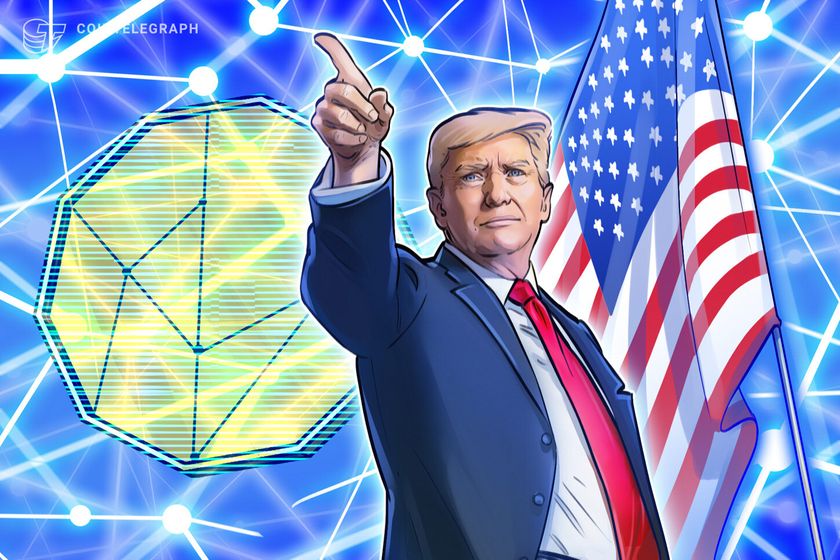
The executive order would instruct regulatory agencies to work with the industry and create a crypto council to represent the industry, according to people familiar with the plans.
US President-elect Donald Trump is reportedly expected to sign an executive order designating crypto as a national priority that could come as soon as he re-enters office on Jan. 20.
Bloomberg reported on Jan. 17, citing people familiar with the plans, that the order would mean regulatory agencies would be guided to work with the industry. It could also create a crypto council to advocate the industry’s policy wishes.
The order could be signed on Jan. 20 — Trump’s first day back as president — but it’s not final and could change before it’s made public, the report said.
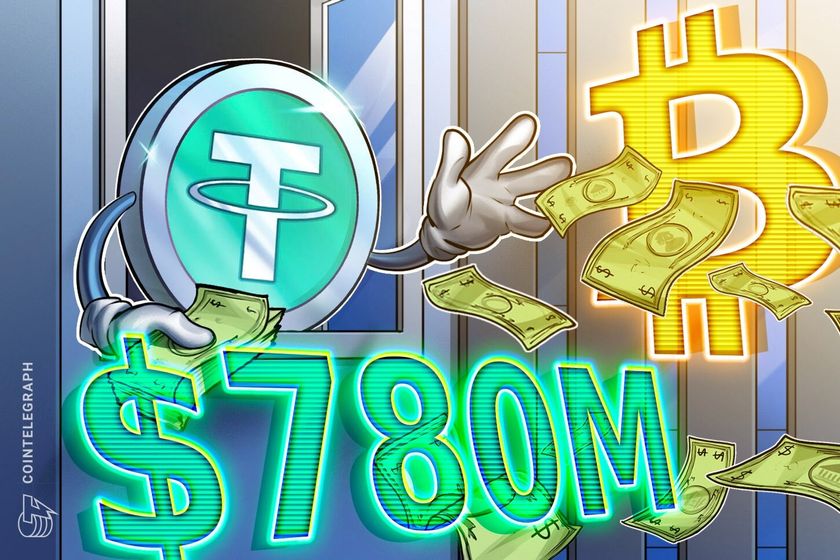
Stablecoin issuer Tether has moved over 8,400 Bitcoin to its reserve in its biggest move since March.
Stablecoin issuer Tether moved nearly $780 million worth of Bitcoin into its corporate Bitcoin reserve in its largest move since March.
Arkham Intelligence shows wallets tagged for Tether’s Bitcoin (BTC) reserve as having received separate transfers of around 7628.9 BTC and 775.6 BTC on Dec. 30, totaling just under 8404.5 BTC.
The latest BTC additions are worth a total of $777.4 million, with Bitcoin hovering around $92,500. It brings Tether’s total holdings to 83,759 BTC, worth just under $7.75 billion.

Canadian-based gold tokenization firm Matador Technologies wants to diversify away from Canadian dollars and is adding Bitcoin to its balance sheet.
Canadian real-world asset tokenization firm Matador Technologies has become the latest company to incorporate Bitcoin into its treasury.
The firm said on Dec. 23 that its board of directors unanimously approved adding Bitcoin (BTC) and “USD-denominated assets” to its balance sheet as part of what it called a “long-term capital preservation strategy.”
Matador said it had identified risks associated with its current treasury primarily denominated in Canadian dollars.

MicroStrategy keeps stacking Bitcoin despite BTC hitting all-time high prices, with its co-founder Michael Saylor confident that his company will still buy it at $1 million per coin.
MicroStrategy, one of the largest corporate holders of Bitcoin, continues stacking BTC despite the cryptocurrency surging to new all-time high prices above $100,000.
MicroStrategy acquired 21,550 BTC for $2.1 billion from Dec. 2–8 at an average price of $98,783 per BTC, the company officially announced on Dec. 9.
As of Dec. 8, MicroStrategy held a total of 423,650 BTC acquired for $25.6 billion at $60,324 per BTC, MicroStrategy co-founder and former CEO Michael Saylor said in a statement on X.
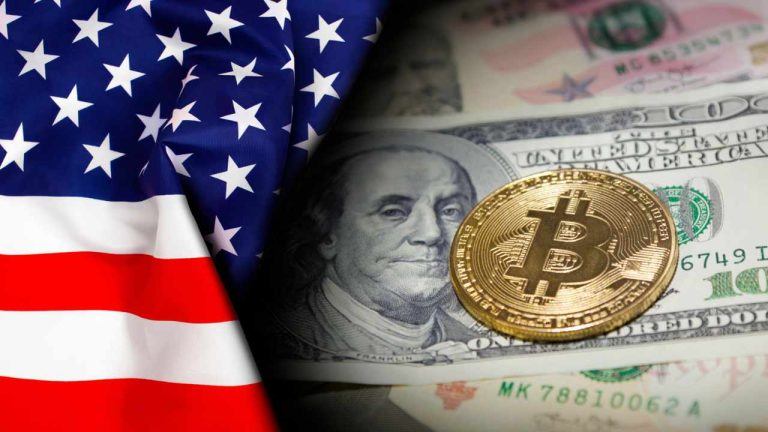 Asset managers have weighed in on Trump’s proposed U.S. bitcoin reserve, reflecting divisions over digital assets in national economic strategy. Asset Managers Divided Over Bitcoin Reserve in Nation’s Bold Strategy Discussions about establishing a U.S. strategic bitcoin reserve have intensified following President Donald Trump’s re-election. Several asset management firms and financial analysts have voiced their […]
Asset managers have weighed in on Trump’s proposed U.S. bitcoin reserve, reflecting divisions over digital assets in national economic strategy. Asset Managers Divided Over Bitcoin Reserve in Nation’s Bold Strategy Discussions about establishing a U.S. strategic bitcoin reserve have intensified following President Donald Trump’s re-election. Several asset management firms and financial analysts have voiced their […]

Bitcoin’s ability to reach and hold the $100,000 level will be influenced by the upcoming $11.8 billion options expiry.
Bitcoin’s (BTC) market is preparing for the year-end $11.8 billion options expiry, set for Dec. 27 at 8:00 am UTC. Recent data reveals a strong advantage for call (buy) options, though bears could significantly limit their losses by keeping Bitcoin’s price below $75,000.
Aggregate Bitcoin options open interest for Dec. 27. Source: Laevitas.ch
As of now, the total open interest for call options is $7.9 billion, while put (sell) options lag at $3.92 billion—underscored by Bitcoin’s 29% rise since October, which has likely rendered most put options worthless.
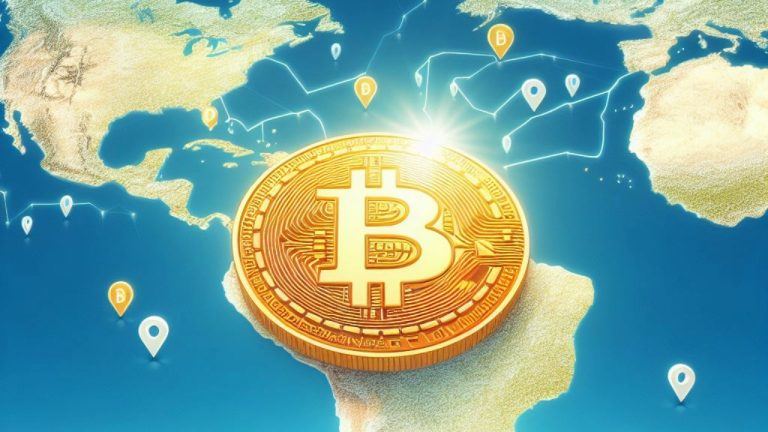 Welcome to Latam Insights, a compendium of Latin America’s most relevant crypto and economic news from the past week. In this issue, Venezuelan opposition leader María Corina Machado proposes creating a bitcoin reserve, Venezuelan President Nicolás Maduro states that the country must retake the crypto path, and a GAFILAT report indicates that bitcoin has not […]
Welcome to Latam Insights, a compendium of Latin America’s most relevant crypto and economic news from the past week. In this issue, Venezuelan opposition leader María Corina Machado proposes creating a bitcoin reserve, Venezuelan President Nicolás Maduro states that the country must retake the crypto path, and a GAFILAT report indicates that bitcoin has not […]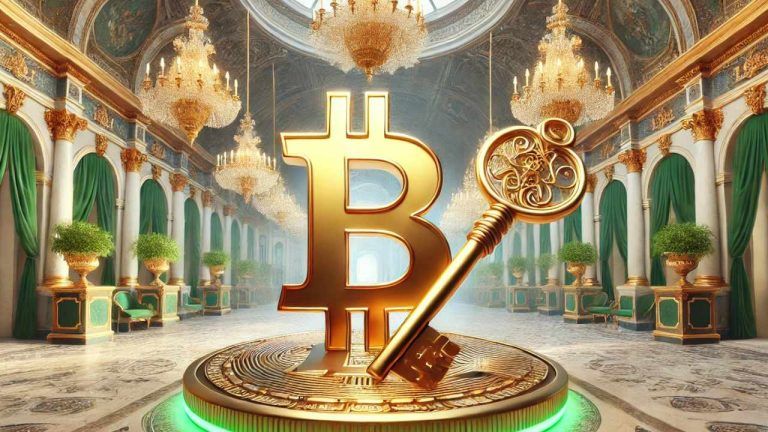 Economist and gold advocate Peter Schiff argues that bitcoin exchange-traded funds (ETFs) contradict the core principles of the cryptocurrency by undermining decentralization and peer-to-peer transactions. He criticizes recent buyers of bitcoin for focusing solely on profit, suggesting this behavior indicates an impending collapse. Schiff also slammed Senator Cynthia Lummis’ bill proposing a U.S. bitcoin reserve, […]
Economist and gold advocate Peter Schiff argues that bitcoin exchange-traded funds (ETFs) contradict the core principles of the cryptocurrency by undermining decentralization and peer-to-peer transactions. He criticizes recent buyers of bitcoin for focusing solely on profit, suggesting this behavior indicates an impending collapse. Schiff also slammed Senator Cynthia Lummis’ bill proposing a U.S. bitcoin reserve, […]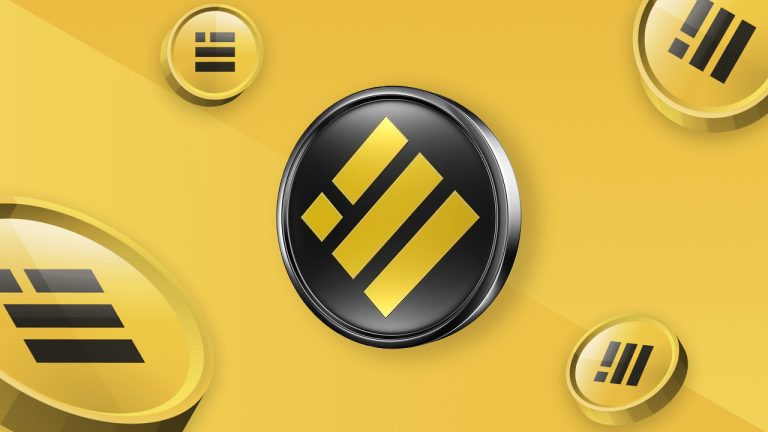 Statistics recorded on April 15, 2023, show that the number of coins in circulation for the stablecoin BUSD dropped below the 7 billion range to 6.68 billion, marking the lowest number of BUSD in circulation since April 2021. Furthermore, data indicates that the supply of BUSD has shrunk by 19.8% over the past 30 days. […]
Statistics recorded on April 15, 2023, show that the number of coins in circulation for the stablecoin BUSD dropped below the 7 billion range to 6.68 billion, marking the lowest number of BUSD in circulation since April 2021. Furthermore, data indicates that the supply of BUSD has shrunk by 19.8% over the past 30 days. […]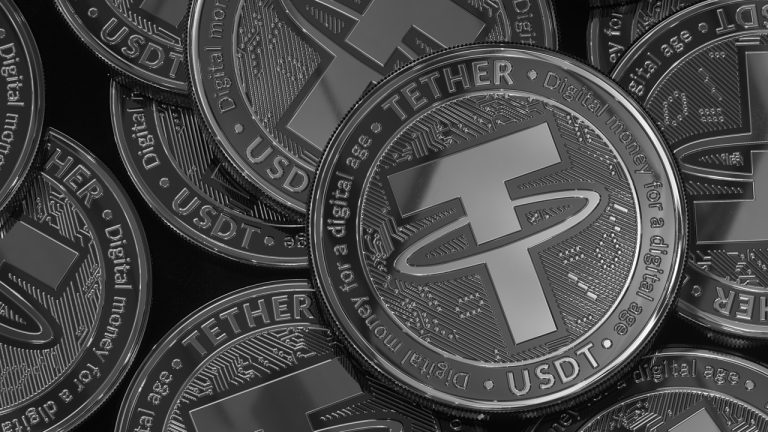 While the stablecoin market has seen significant redemptions in the past three months, the supply of tether, the largest stablecoin by market capitalization, has increased by 2.46 billion since mid-November 2022. Tether is the only one of the top five stablecoins by market valuation that has seen a supply increase in the past three months. […]
While the stablecoin market has seen significant redemptions in the past three months, the supply of tether, the largest stablecoin by market capitalization, has increased by 2.46 billion since mid-November 2022. Tether is the only one of the top five stablecoins by market valuation that has seen a supply increase in the past three months. […]